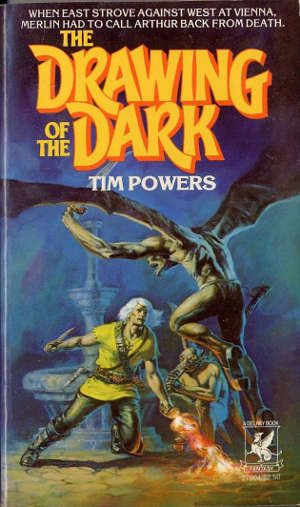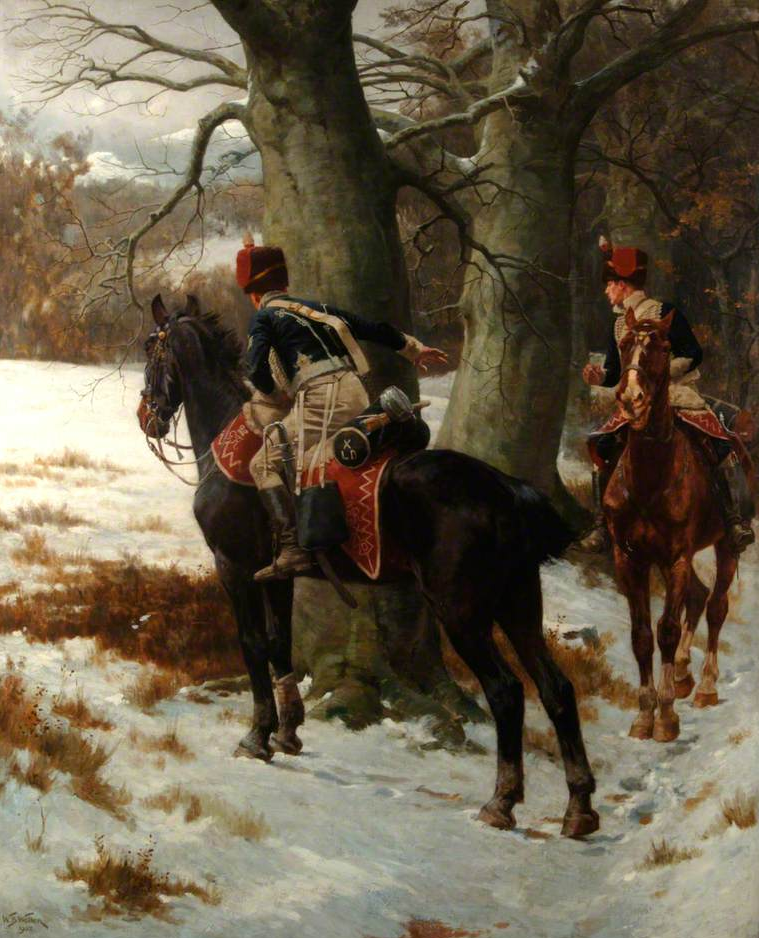Editor’s Note: This is first in a series of reviews of Tim Powers’ writing. We will run the others soon, as well. Men of the West are readers. The Last Redoubt does us a service by introducing our readers to an author you may have missed.
I keep tabs on Bruce Charlton’s blog, and so the recent post on Phil K Dick caught my eye.
In the past couple of months I have read/ listened-to a dozen Philip K Dick novels, and most of the Exegesis – his philosophical and spiritual journal written during his last eight years. I haven’t enjoyed a fiction writer so much, in such quantity, for several years. Certainly, I appreciate his work more fully this time round than when I read a batch of his novels more than thirty-five years ago (triggered by watching Blade Runner – one of the half-dozen best movies I’ve ever seen).
Although there are several of his important works still to go (I’m ‘simultaneously’ reading three of them at present) I think I have by-now achieved a reasonable overview.
In particular; I have noticed that his very best novels are from the 1960s, and before the spiritual revelations that began abruptly in February and March 1974, continued through the rest of his life – and led to his almost daily and extensive work recorded in the Exegesis – which was the attempt to make sense of what was happening to him, and understand the implications.
Item the first – I may have to go back and read PKD again. Not just DADoES and a few other bits I read in middle and high school, but in it’s entirety. Why?
Actually, the conclusion to the article, and one other item that caught my eye.
…In particular, in all of Dick’s last three works, the possibility of a genuine contact with the divine is put into brackets, and the materialist explanations seem to triumph overall. Whereas in the Exegesis, the most high intensity and ecstatic sections are without doubt those when PKD knows (albeit temporarily) that he has had real revelations of the truth.
Dick’s mainstream critics and admirers, and most of his social circle, are normal modern Leftists for whom the divine is excluded by assumption; and who therefore necessarily interpret every strange experience as generated by insanity, drug use or over-imaginative wish-fulfilment.
(From what I have seen, so far) Perhaps only his friend, the author Tim Powers (a Roman Catholic) was able and willing to acknowledge that what Dick experienced included genuine divine revelations. And only when this possibility is recognised, can the Exegesis be appreciated as fully as it deserves.
Given that “Dick’s mainstream critics and admirers, and most of his social circle, are normal modern Leftists for whom the divine is excluded by assumption”, it never occurred to me that he might actually be anything but such a liberal himself. Especially since I had not read anything of his since the 80’s, when I still bought into a lot of said liberal assumptions.
The bit about Tim Powers both caught me by surprise, and in reflection, was utterly unsurprising.
I read a lot in school, despite the best efforts of the education system to beat a love of reading out of us by shoving boring, worthless crap down our throats. Occasionally there was something good — my fondness for the Stallone movie Oscar is almost entirely rooted in my appreciation of reading and watching Arsenic and Old Lace in English class — but they also tried to shove lit-fic darlings like Lord of the Flies into our heads.
Few things say more about the failings of public schooling than being repeatedly disciplined for reading other books instead of paying attention in class.
As part of all said reading I voraciously went through the school library. I’d never have bothered to read Stephen King a few years later despite all the assurances of what a great author he is, if I’d known that it was the same person who wrote The Long Walk as Bachman. Where TLW is vividly remembered for it’s awfulness, though, another book, a modernish-style urban fantasy set in a besieged Vienna, stayed with me these decades as well. That was The Drawing of the Dark.
Though it is the only Tim Powers book I have read, it has warmly haunted my memories as much as Wolfe’s New Sun and Long Sun books.
So no, thinking it over, I’m not surprised that he was a Roman Catholic, or the sort who might take PKD seriously on the subject of revelation.









